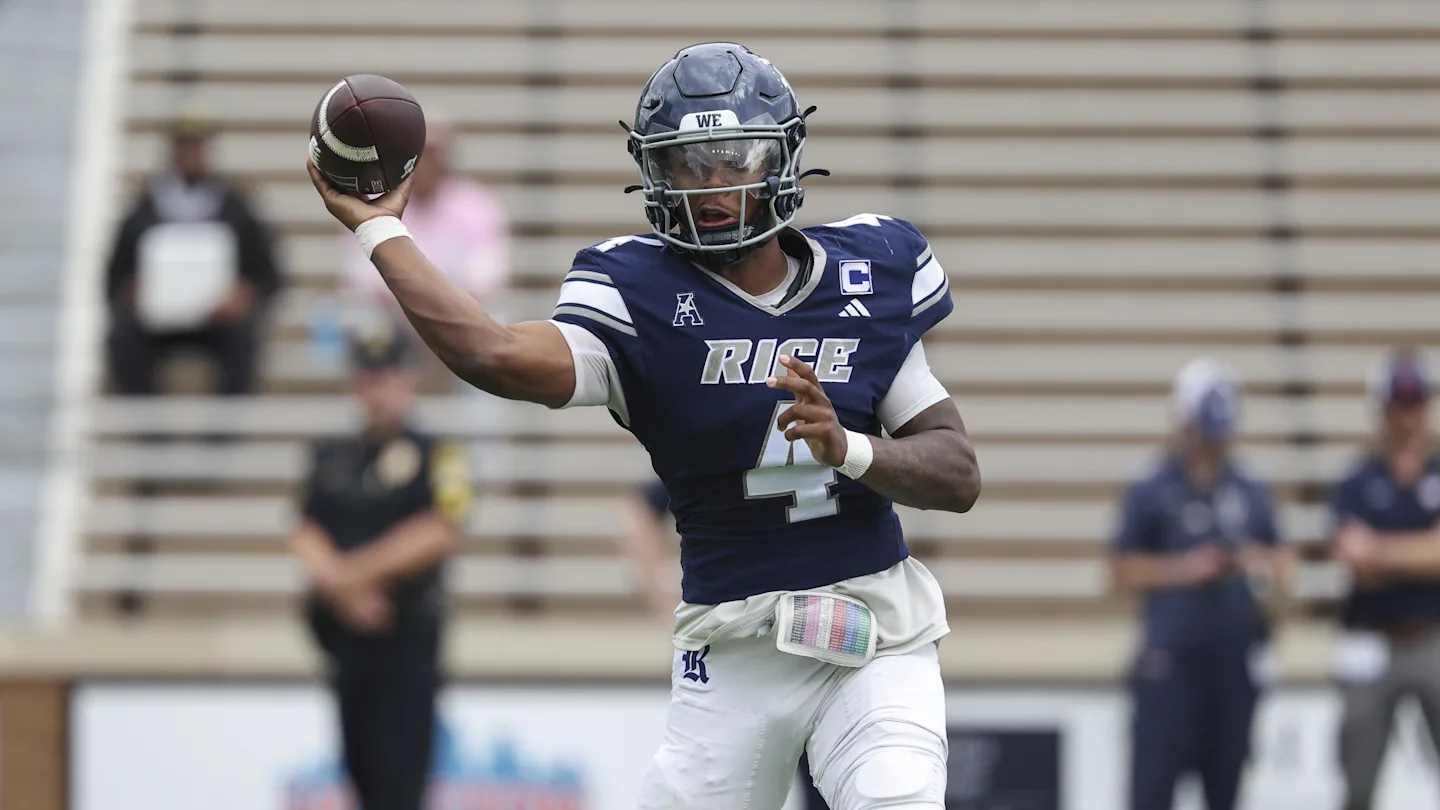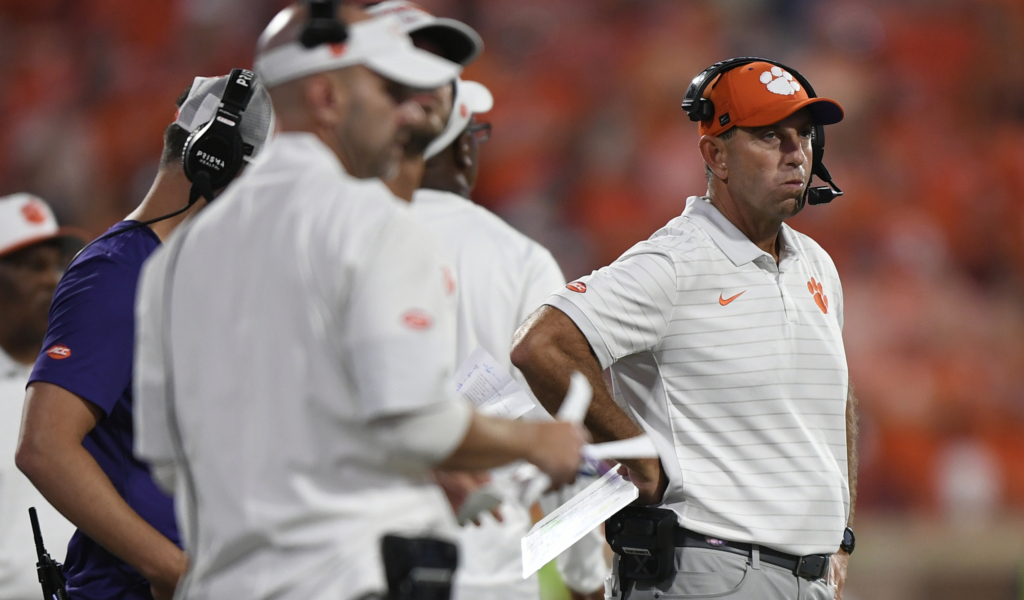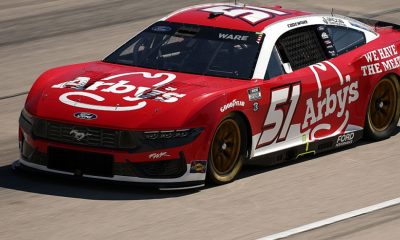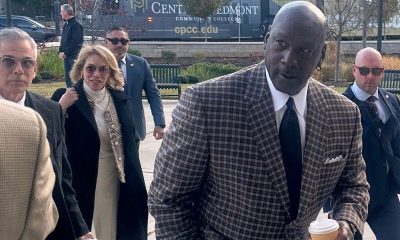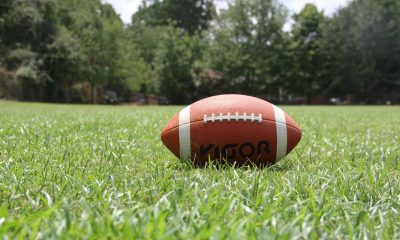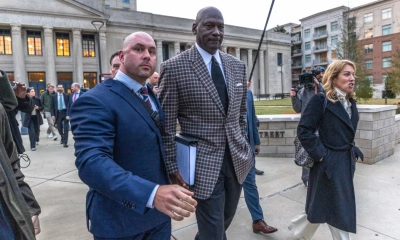After RJ Luis Jr., the second-team All-American college basketball player from St. John’s University, put his name in the transfer portal in late March, the offers came pouring in. Luis, a 6-ft. 7-in. junior, was the top player in the transfer market, and according to his camp, he received starting offers in the $3 million to $4 million range to play for Kansas, Arkansas, North Carolina, Indiana, and other top programs.
Before the NCAA began allowing Name, Image, and Likeness (NIL) four years ago, staying in college was considered a financial risk for basketball prospects. Any injuries suffered in school could imperil future professional earnings. Now, however, athletes can earn seven figures a season through sponsorship deals with third parties and pooled booster funds from a school’s alumni and fan base, known as collectives. And on June 6, a federal judge approved a court settlement that cleared the way for schools to directly compensate athletes themselves, rubber-stamping the end of amateurism in big-time college sports. For many players these days, it makes more sense to return to campus for a guaranteed payday.
Especially for a player like Luis, who unlike, say, the consensus No. 1 pick Duke freshman Cooper Flagg, is by no means a top NBA prospect guaranteed to make more than $3 million in his rookie season. Luis’ final college game—a 3 for 17 shooting nightmare in a second-round NCAA tournament loss to Arkansas that, in a controversial decision by St. John’s coach Rick Pitino, ended with Luis on the bench—did his draft stock no favors. In fact, some mock boards don’t have Luis being drafted at all.
And yet on May 28 Luis’ agent revealed that he would be going against the 2025 athletic grain and staying in the NBA draft, which he had entered in March as well. To many, this decision came as a surprise. He turned down the transfer-portal offers, giving up those riches–Indiana and North Carolina declined to comment; Kansas and Arkansas did not reply by press time–and if he doesn’t get drafted, he can’t go back to college. But Luis insists it’s the right move.
“I don’t think it’s necessarily a risk,” says Luis, 22, on June 11 from Charlotte, before conducting a workout with the Hornets, who currently have the fourth, 33rd, and 34th picks in the draft (the first round will take place on June 25 at the Barclays Center in Brooklyn, while the second round unfolds the next day). “If I do what I have to do in the NBA, then I can make even way more money than that. So it’s not even about the money. Because if it was, I would have gone back to college. But it’s just trying to set myself up for the future, to be honest. I think I had an amazing year. What better time would it be to go to the next level and pursue my dreams of playing in the NBA?”
In other words, Luis is taking a gamble on himself.
“That’s what I’ve been doing my whole life,” says Luis. “I’ve had countless people telling me what my limitations are. But I end up passing their expectations. So yeah, I’d say I’m betting on myself. I’ll always take me, 100%.”
“You’ve gotta set up your plan, man, and stick with your plan,” says Reggie Charles Luis, RJ’s dad, who played professionally overseas in 10 different countries, including the Dominican Republic, Spain, Argentina, North Macedonia, and Germany. “And that’s what we’re doing.”
Luis grew up in Miami, where his mother Verito Luis, who worked at a community center, insisted he sample a variety of sports: soccer, basketball, tennis, baseball, karate. A self-described late bloomer, RJ Luis says he didn’t start taking basketball all that seriously until the summer after 10th grade, when he earned a spot on the Dominican Republic’s under-17 national team for a tournament in Puerto Rico, featuring teams from Central America and the Caribbean. Coming out of high school, he had offers from only a couple of lower-level Division 1 schools. He did a post-grad year at a prep school and earned a scholarship to UMass, a mid-major whose coach, Frank Martin, is known for his intensity. “I learned how to play some defense,” Luis says.
After a productive freshman season for the Minutemen in 2022-2023, Luis leaped at the chance to transfer to St. John’s, located in the New York City borough of Queens, to play for Pitino, the Hall of Famer who had just taken over the program. “I’ve heard a lot of coaches say they work out their guys all the time,” says Luis. “To actually see Coach Pitino keep his word and actually do it, I was very intrigued.”
Injuries slowed him his sophomore season. Luis fractured his hand in preseason, and shin splints in both legs limited his practice time. “I was just very out of rhythm,” says Luis. Soon after the season—St. John’s failed to make the NCAA tournament—he underwent shin surgery and spent some three to four months in recovery. “The first month and a half, I couldn’t walk,” says Luis. “My dad actually had to carry me everywhere. I was in a wheelchair. It was pretty bad.”
Once he could move about, Luis spent time in the summer working with his father trying to remove a hitch in his shot. The practice paid off. His junior season was spectacular. Luis improved his three-point shooting and led St. John’s to its first Big East regular-season title in 40 years and its first conference tournament championship since 2000. He was named Big East Player of the Year.
Even more important than the individual accolades, Luis, Pitino—the national coach of the year—and the Red Storm revived a former national power that had been stagnating, in the media capital of the world no less, for decades. St. John’s packed Madison Square Garden throughout February and March. The Tonight Show featured the team.
So the early NCAA tournament exit was devastating, especially for the Red Storm’s long-suffering fans. St. John’s was seeded No. 2, in the West region: Arkansas, the 10-seed, upset the Red Storm 75-66, on March 22, in the second round. Luis had struggled throughout the game, but with 4:56 left, he made a pair of free throws to cut Arkansas’ lead to two, 64-62. Sometimes, seeing the ball go through the basket, even on foul shots, can help a shooter’s confidence.
“That’s what my mind-set was,” says Luis. “Knocked these two free throws down. Cut it to a one-possession game, try to slow down myself. And, you know, anything can happen in five minutes. This is college basketball.”
Instead, Pitino subbed out Luis after the second shot. And incredibly, he never put his All-American back in.
The decision was especially baffling because it’s not like anyone else on St. John’s was making shots in Luis’ stead: the team finished the game shooting 2 for 22 from three-point range. “I was just shocked and just confused,” says Luis. “I was just trying to stay as calm as possible and not do anything or make it worse.”
Luis had expected Pitino to give him a pep talk and put him right back in the game. After all, coaching players up is his job. “He’s done it before,” says Luis. “There have been other games where he’s spoken to me. Obviously I couldn’t make a shot. But the whole team, we were just off. Nobody could make a basket. So I don’t know.” But as the minutes ticked away, it became apparent that Luis’ incredible season was going to end with him as a bench spectator.
Pitino has defended his choice. “It was the right move because of where he was mentally,” Pitino said on the VICE TV docuseries Pitino: Red Storm Rising, adding, “He was forcing shots, and it was affecting the rest of his game … 100% the right decision, not playing RJ Luis in that game, 100%.”
Luis says he hasn’t spoken to Pitino since early April, around the time Luis informed him he was putting his hat in the NBA draft ring, while entering the transfer portal as a backup plan in case he changed his mind. While Luis, naturally, disagrees with Pitino’s decision to bench him, he declines to knock his former coach. “Just trying to take the high road and just end it on good terms,” says Luis, who tells TIME that if he had decided to stay in college, he would have returned to St. John’s. By putting his name in the portal, he was just keeping all options open.
Meanwhile, Pitino has publicly touted Luis’ potential. “He’s going to be a great pro,” Pitino said before throwing out the ceremonial first pitch at a New York Yankees game in the Bronx in early June.
When asked if the benching hurt his draft prospects, Luis pauses for seven seconds to consider his answer. “I mean, it probably just brought up those ‘what ifs,’” says Luis. “Not necessarily hurt, just trying to figure out, like, what did he do to get put in that position?”
Luis, who hopes to be the first Ecuadorian-American to play in the NBA—his mom was born in Ecuador, his dad in the Dominican Republic—has worked out for about a dozen teams over the past month or so: he says he’s performed best in front of the Golden State Warriors, the Phoenix Suns, the Oklahoma City Thunder, the Detroit Pistons, and the Orlando Magic. He’s blocking out the mock draft boards that have all NBA teams passing on him. “All that stuff is speculation,” he says. “In the past, we’ve seen a bunch of guys, where they have them at a certain number, and they end up not even close to where they’re supposed to be. So I’m really just controlling what I can control.”
He says teams tell him he’s likely to be a late first-round or early second-round selection. He believes he’s worthy of a first-round status. “One hundred percent,” says Luis. “My game is more applicable to the NBA. Just the spacing and the speed of the game. I’m still working on my three-point shot, but I’m not worried about that. I know I’m going to get that down.”
His message to NBA GMs who pass on drafting him: “They’re missing out,” he says. “And they’re going to have to face me one day.” And for all the hoops fans who think he’s making the wrong decision by going pro now and not cashing in on one more year of college? “Thank you for all the support,” he says. “Do not worry about me.”



